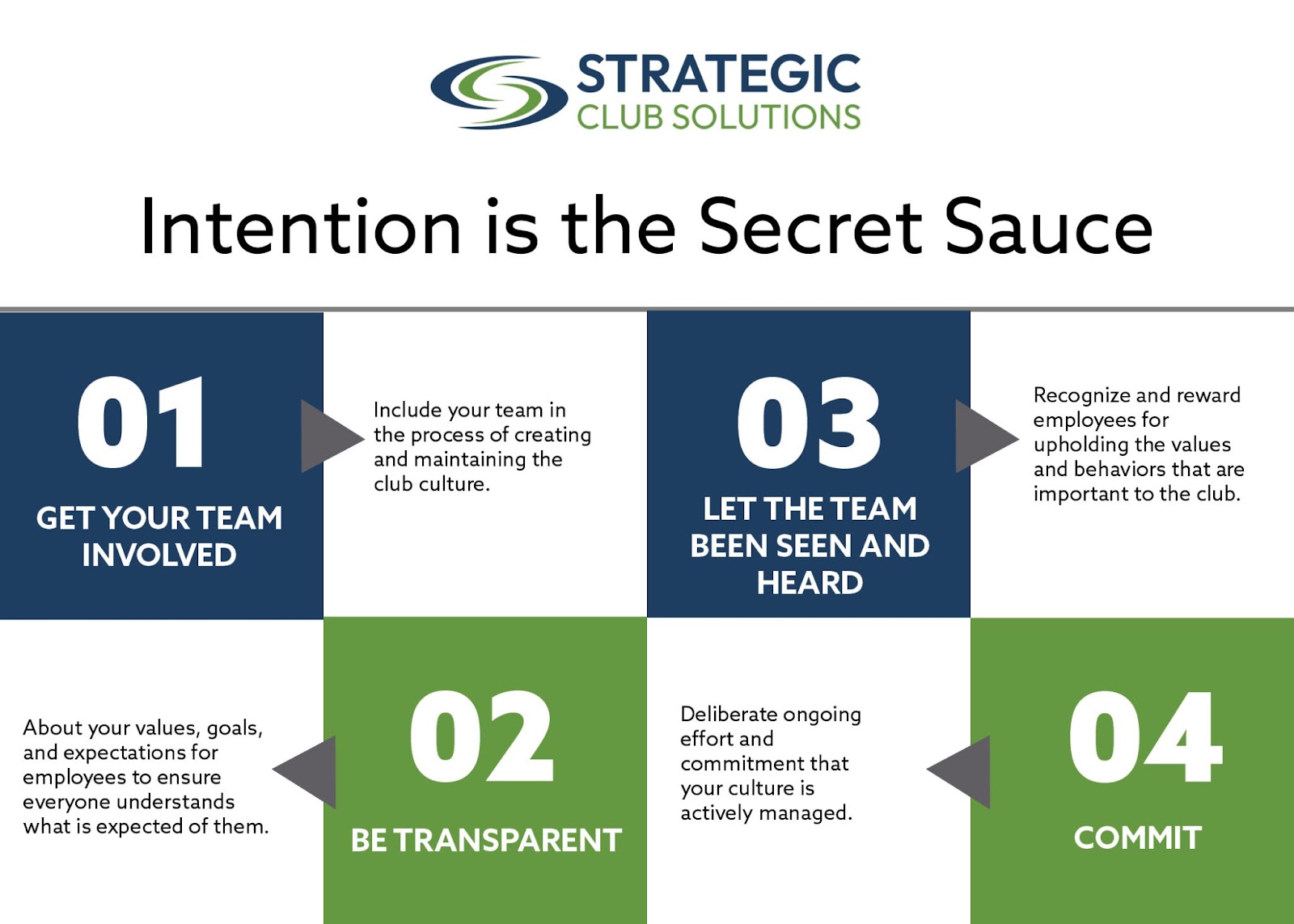These shocking statistics are hard to swallow in a time when finding and keeping employees is the main challenge for clubs across the country. But, we found a process that is working, Intentional Club Culture.
Recently, club culture has become an increasingly important factor in attracting and retaining employees. A positive culture along with authentic and consistent rewards and recognition programs can not only improve employee engagement and productivity, but it can also impact the overall success and reputation of a club.

Beware, the word culture is handed out too easily. Over the years it has at times been reduced to a sweeping, generic term with little tangible impact. However, the pandemic has significantly altered the landscape of the club and hospitality industries bringing culture to the forefront.
Today, it is imperative for clubs to thoroughly examine and understand their culture at every level of their operations. Failure to do so may not only hinder growth, but also threaten their very survival in the contemporary climate.
Here’s the twist. We believe the secret sauce is in providing “Intentional Club Culture” as the way for clubs and communities to create a positive environment that reflects their values and goals — and ultimately helps attract and retain employees.
Intentional Club Culture is the deliberate effort to create and maintain a specific culture within an organization. It involves identifying the core values and beliefs that the club wants to uphold, and then actively promoting those values through policies and procedures, and recognizing and rewarding those positive behaviors. By intentionally creating a company culture, clubs can shape the attitudes and behaviors of their employees, and ultimately create a more positive and productive workplace.
According to a research done by the Center for Hospitality Research at Cornell, it costs a club an average of $5,864 for a single employee turnover from the front-line staff.
Get them involved.
One key aspect of Intentional Club Culture is employee involvement. Employees should be included in the process of creating and maintaining the club culture based on principles of social psychology and organizational behavior. The social identity theory suggests that people tend to define themselves in terms of their group memberships, including their work organization. This means that employees are likely to identify with and feel a sense of belonging to their club, and they will be more motivated to contribute to a positive club culture if they are involved in its creation.
Be transparent.
Another important aspect of Intentional Club Culture is transparency. Clubs should be transparent about their values, goals, and expectations for employees to ensure everyone understands what is expected of them, reducing the likelihood of misunderstandings or confusion. When everyone understands and embraces the same values and goals, it helps to create a sense of unity and shared purpose. Employees are more likely to trust their leadership and feel confident in their decision-making.
When employees have a clear understanding of their expectations, they tend to excel in their job responsibilities. For example, if a club emphasizes the core value of integrity, it is crucial to acknowledge and reward an employee who embodies this principle. Consider a situation where an employee discovers a wallet in the parking area, contacts the owner, and returns it. Such instances offer an opportunity to recognize and appreciate a genuinely engaged employee. Transparent communication from leadership demonstrates to all employees that their efforts are valued, ultimately fostering enhanced performance and engagement.
Fun fact – 80% of people make decisions purely on emotions. By creating an Intentional Club Culture, these decisions will be made with a positive emotion, not a negative one.
Let them be seen and heard.
Intentional Club Culture also involves consistent feedback, communication and partnership. Clubs should recognize and reward their employees for upholding the values and behaviors that are important to the club.
To achieve this Intentional Club Culture, clubs need performance evaluations, and consistent rewards and recognition programs. By providing employees feedback and rewarding them for positive behavior the club culture becomes more than just words on paper; it becomes a way of life within the organization.
Commit.
Intentional Club Culture requires a deliberate ongoing effort and commitment. It is not something that can be created and then forgotten about, it needs to be actively managed. Clubs must continuously evaluate their culture, provide consistent and authentic recognition, seek feedback from employees, and make adjustments as needed. By consistently prioritizing culture, the club helps to create a strong and cohesive organization that is aligned around shared values and goals. This will also improve employee engagement and retention, enhance member satisfaction, and ultimately contribute to the success of the club.